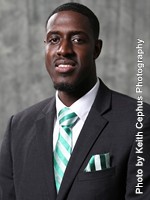We’re at the point in the season where coaches come and coaches go. And we remain amazed at the lengths some folks will go to put a men’s basketball assistant in charge of their women’s basketball program.
It didn’t go unnoticed in the WBB community.
Still, the speed at which the Spartans moved to lock in Vickers, who had never been a head coach before, begs several questions. Among them:
- How much due diligence was performed before NSU made this hire?
- Did Vickers really show so much during a stint in which the Spartans went 3-8 that no other candidates earn serious consideration?
- Is this really the way to fill a head-coaching vacancy in a Division I program?
We asked Hall-of-Fame coach Marianne Stanley about the trend. “It’s disturbing,” she said. “There certainly are a number of qualified women who should be coaching at all division levels. I think it’s incumbent upon athletic directors to do their due diligence and identify them.”
We don’t have a problem with a lot of the reasons men get women’s head-coaching jobs. And when one considers that all four teams in this year’s Final Four were led by men, clearly such a move often pays off big. But it’s one thing when women don’t get jobs they interview for. It’s another when women don’t even get the chance to apply. And frankly, it’s even another when you call upon an assistant down the hall from another program to take over your women’s team while staying in his current position, as happened with Vickers for most of the conference season.
Former Olympic coach Anne Donovan said she’s not in favor of any kind of gimmick that would require ADs to include a woman in a pool of hiring candidates, but like her former coach Stanley, she doesn’t like the direction WBB coaching is headed.
“A lot of it comes down to who do we want coaching our young women? what kind of mentors are they?” she said. “If I’m hiring, whether it be for a head job or an assistant position, .I”m going to look at every quality candidate. If the best candidate is a guy he should get the job I would hope.”
As for the “basketball is basketball” arguments we commonly hear when a women’s basketball outsider moves down the hall to take over, consider the case of former Virginia Tech coach Dennis Wolff. Wolff came with ample men’s basketball coaching experience. Still, he struggled initially in his debut coaching women, particularly in recruiting. Without a network in the women’s game, Wolff relied heavily on international players to fill out his roster for two or three recruiting cycles before Tech could make inroads in the state and region.


 Atticus Finch@wbballhoopscoop
Atticus Finch@wbballhoopscoop